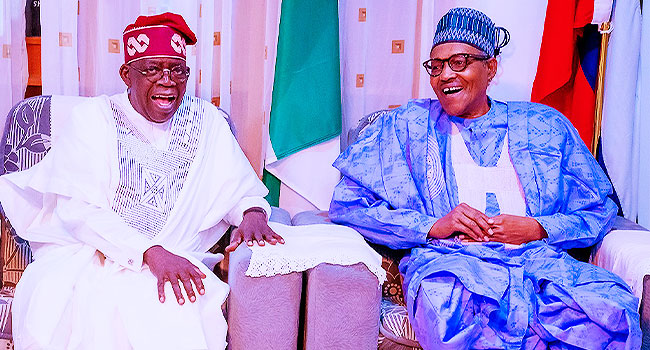In a gesture of rare political camaraderie, President Bola Tinubu publicly thanked his predecessor, Muhammadu Buhari, for respecting his independence in forming his 48-person cabinet last August.
Speaking at the launch of “Working with Buhari: Reflections of A Special Adviser, Media, and Publicity (2015-2023)” penned by former presidential spokesman Femi Adesina, Tinubu lauded Buhari’s “statesmanlike” conduct in refraining from meddling in the selection process.
Tinubu, who addressed the room crowded with serving and former political office holder, said, “After handing over, you (Buhari) said, ‘I will be far away in Daura but if you need me, contact me. I won’t intrude in whatever you are doing. I won’t interfere. I won’t breathe down on your throat’.
“We’ve partnered to make democracy flourish in Nigeria, thank you.
“Except when I call him (on the phone) to say, ‘Are you living, are you going to the farm?’, you don’t hear from him (Buhari) either to nominate or intrude in the cabinet or complain about issues. Thank you for being who you are.”
This public acknowledgement represents a significant olive branch between the two leaders, who have not always enjoyed the smoothest political relationship. Tinubu’s praise for Buhari stands in stark contrast to the frequent accusations of interference and micromanagement that plagued Buhari’s own administration.
By highlighting Buhari’s restraint, Tinubu not only underscores his own authority but also sets a potentially precedent-setting example for future Nigerian leaders. The act of publicly thanking a predecessor for respecting political boundaries carries substantial weight in a nation accustomed to power struggles and factional allegiances.

